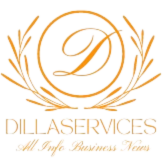
In order to acquire knowledge on pursuing a career as a cleaner, it is important to familiarize oneself with the essential prerequisites for attaining proficiency in this field. These prerequisites consist of:
1. Acquiring Foundational Knowledge
While a formal education is not necessary to pursue a career in cleaning, many employers show a preference for candidates who have completed high school. Moreover, employers tend to favour candidates who have passed their GCSE exams, specifically in English and mathematics. If you intend to work as an independent contractor or freelancer, it would be beneficial to develop your numeracy skills to accurately calculate pricing and handle client payments. Additionally, improving your reading and comprehension abilities would enable you to efficiently read and sign contracts, as well as enhance your invoice writing skills.
2. Acquiring the necessary education and skills
If you lack formal experience in the cleaning industry, acquiring training is an additional avenue to develop your cleaning skills. You have the option to enrol in a cleaning course, which will provide instruction on cleaning techniques and the proper handling of different objects. Moreover, numerous employers offer short-term and on-the-job training to recently hired individuals, facilitating their understanding of essential concepts like cleaning methodologies and safety protocols associated with chemical handling.
3. Obtaining the necessary certifications for expertise
the Institute of Occupational Safety and Health offers various accredited short courses that can enhance your skills and demonstrate your expertise in the cleaning industry. These certifications are valuable to potential employers as they validate your knowledge. Here are a few examples of the courses available:
Enhancing Your Expertise
In order to excel as a competent cleaner, it is important to possess specific abilities that enable you to effectively interact with supervisors, clients, and colleagues. These essential skills can be honed through consistent practice and on-the-job experience. Here are some key skills that are vital in the cleaning industry.
5. Acquiring Applicable Work Experience
Typically, inexperienced cleaners begin their employment by carrying out simple tasks and acquiring knowledge from their more seasoned counterparts until they become proficient enough to work autonomously. CJH cleaning positions are considered entry-level and do not necessitate prior experience, certain employers may prioritize candidates who have a few months of experience operating intricate and heavy machinery. To obtain relevant work experience, you can participate in an apprenticeship program or intern at a cleaning company.
6. Crafting your Curriculum Vitae
Crafting a professionally written curriculum vitae (CV) is an effective method of showcasing your abilities and credentials to prospective employers. Within your cleaner resume, it is essential to incorporate pertinent details such as your educational background, training, professional experience, skill set, certifications, and contact information. By accentuating relevant experiences and abilities, you can effectively demonstrate your suitability as a cleaner to potential employers.
7. Job Application Process
Once you have crafted your curriculum vitae (CV), you are ready to commence the job application process. To find opportunities in the field of cleaning, you can explore various resources such as job boards, search engines, and social media platforms. Additionally, reaching out directly to cleaning companies to inquire about available positions can also be beneficial in securing employment.
The Responsibilities of a Cleaner
The specific tasks assigned to a cleaner can differ depending on the specific work environment, but in general, their overall duties typically encompass:
- To guarantee cleanliness in a particular space, it is important to perform various cleaning actions such as vacuuming, dusting, sweeping, disinfecting, and mopping surfaces.
- Clearing out debris from ashtrays and containers, sanitizing waste receptacles, and substituting them with new ones.
- Adhering to the guidelines and protocols for safety and well-being
- Ensuring worksite security is maintained by locking the building when each shift ends.
- Notifying supervisors regarding any instances of security breaches.
- Maintaining and tidying up room accessories and furniture as necessary.
- The process of cleaning and shining glass surfaces, such as windows and mirrors, is an essential task for maintaining their appearance and clarity Cleaning washbasins, sinks, and toilets in both public and private restrooms.
